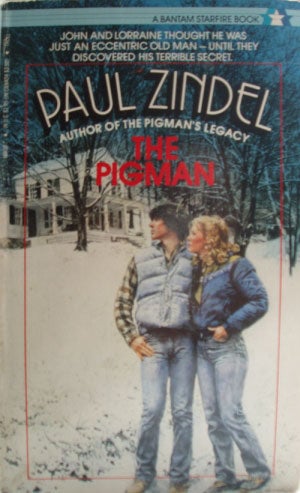Farmer, Nancy (1994) The Ear, The Eye, and the Arm. New York: Scholastic.

Opening line:
"Someone was standing by his bed, a person completely unlike anyone Tendai had ever met."
Zimbabwe, 2194. When his three children are apparently kidnapped, General Matsika seeks the help of three very unusual detectives, the Ear, the Eye, and the Arm, all possessed of unusual abilities. But even as the detectives track the Tendai, Rita, and Kuda, the three children have escaped their captors and are trying to elude pursuers and may be running into more danger than they originally were in. Somehow, both groups end up becoming involved in a conflict as old as humanity, where good and evil fight it out in the great city and it is up to both the misfit detectives and the children to save the country..
This story was gripping and thought-provoking enough in 1994 to win a Newbery Honor. It has lost none of its excitement in the twenty plus years since it came out. In fact, in today's political landscape of turmoil, students may find it refreshing to be in a desperate fictional battle between good and evil, knowing that in the end, good will prevail
This would make a good read-aloud for fourth or fifth grade. Fifth graders through middle school would enjoy reading it themselves. There is nothing particularly offensive or likely to be challenged in this book. I recommend it.
Hill, Kirkpatrick (2002) The Year of Miss Agnes. New York: Aladdin.

Opening lines:
"What happens now?" I asked Mama as we watched the plane take the teacher away.
"Maybe no more school," Mama twitched her shoulder a little to show she didn't care.
The kids who attend the one-room school house in a tiny Alaskan village have gone through more teachers than they can count. When Agnes Summerfield shows up one day, they find out what good teaching is like, but they all are wondering whether Miss Agnes will stay.
Look, maybe this will be easier if I just give you a quote form the book. Here you go:
"When Miss Agnes read to us, she did all the people in different voices and we forgot right away it was just reading. It got real, like being inside the book.
"I didn't want Miss Agnes to ever stop reading. I felt as if I really was in that deep, dark forest with trees taller than you ever heard of. And when she stopped, I felt shocked, as if I'd come out of a dream." (p. 39)
See? It is a nice world to spend some time in and would make a great read-aloud for third through fifth grades. Nothing objectionable here, except perhaps the vaguely imperialist notion that a white woman from England is teaching native Alaskans. I prefer to think of it as reenforcing the notion that teachers care for thier students, period.
Read this. It will make your world happier.
Zindel, Paul (1968) The Pigman. New York: Bantam.

Opening Lines:
"Being of sound mind and body on this 15th day of April in our sophomore year at Franklin High School, let it be known that Lorraine Jensena and John Conlan have decided to record the facts and only the facts about our experiences with Mr. Angelo Pignati."
All right, this may not be quite as much of a recommendation as the other two. But some readers may remember this one from their own high school experience and may enjoy returning to a realistic novel and characters whose challenges seem almost quaint in light of what we deal with in today's world. I think maybe The Pigman is an acquired taste. And to be honest, this book has not worn as well as the last one. Kids today may have trouble figuring out what it means when one character says to another "You're such a card". Lorraine's fascination with psychology and analysis may also seem very much out of date. The way Lorraine's mother resigns herself to putting up with sexual harassment a the workplace may be authentic, but is also depressing. Some students may have trouble relating to the sixties-style experimentation attitude that leads Lorriane and John to throw a party at the Pigman's house when he is in the hospital without so much as thinking about it. Finally, depending on your reading of the book, it may seem to end without much hope for the future of the characters at all.
Having said that, the book alternates between the voices of John and Lorraine and the very different way in which they see the same events is certainly intriguing. Likewise, John's bad boy attitude may interest some readers as well. There were parts in the book where I laughed out loud. For a certain sort of reader, this book may connect in an authentic way.
This one is probably best for high school. There are some vague sexual references and certainly a jaded and callous way of viewing the world, but little here that could invite a challenge in this day and age.
No comments:
Post a Comment